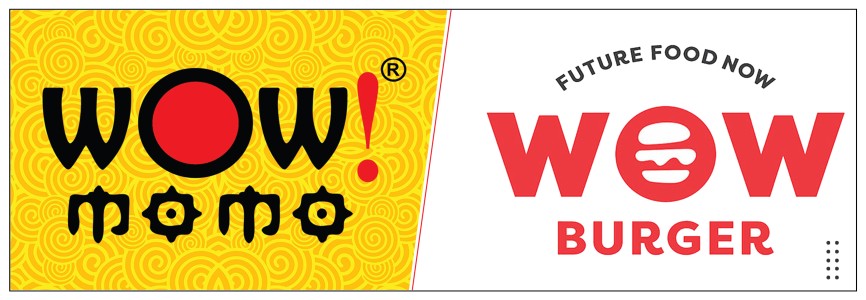The Delhi High Court has refused to stop a food brand named Wow Burger from using the word “WOW” in its name. This decision came after Wow Momo Foods Pvt. Ltd., a popular Indian food chain from Kolkata, filed a case saying that Wow Burger was copying its name.
The Court said that “WOW” is a common word that many people use to show surprise or happiness especially about food. Because it’s a normal word, no one can claim it as their own.
Background of the Case
Wow Momo is a fast-food company started in 2008 in Kolkata. They sell items like momos, burgers, and other snacks. Today, they have over 600 shops in more than 30 cities in India. Over the years, they created different brand names, such as:
-
WOW MOMO (main brand)
-
WOW CHINA
-
WOW BURGER
Wow Momo said that they have been using the word “WOW” in their brand names for many years. Because of this, they believed that people now recognize the word “WOW” with their company. So, when they saw a new company called “Wow Burger” (from Hong Kong) planning to open stores in India, they felt this would confuse customers. People might think Wow Burger is connected to Wow Momo.
That’s why Wow Momo went to court. They wanted the judge to:
-
Stop Wow Burger from using “WOW” in any form
-
Say that only Wow Momo can use “WOW” in food business
Learn more about Trademark Registration.
Delhi High Court Ruling
“WOW” is a Common Word That Everyone Uses
The judge said that “WOW” is just an everyday word. It’s not unique or special to Wow Momo. People all over the world use the word “WOW” when they taste something good or experience something nice.
For example: When someone eats a tasty burger, they might say, “Wow, this is delicious”
The judge explained that because the word is so commonly used, Wow Momo cannot stop others from using it, especially in the food industry where such praise words are very normal.
Wow Momo Did Not Show That "WOW" Belongs to Them Only
Wow Momo argued that when people see the word “WOW,” they think of Wow Momo’s brand. This idea is called “secondary meaning” in trademark law.
Secondary meaning means that even though a word is common, over time it becomes so connected to one company that the public thinks of only that brand when they see the word. But the judge said Wow Momo didn’t give strong proof that people only think of Wow Momo when they see the word “WOW.” So, the Court did not agree that the word “WOW” now belongs to just one company.
Relevant Provisions under Trademarks Act, 1999
The judge referred to two important sections from the Trademarks Act, 1999, which is the law that governs trademarks in India:
-
Section 9(1)(b): This law says that you can’t register a trademark if it only describes how good something is. Words like “fresh,” “tasty,” or “wow” are examples. They simply tell customers that the food is good but these words can be used by anyone and can’t be owned by one company.
-
Section 30(2)(a): This law says that even if someone registers a common word as their trademark, others can still use it if they are using it honestly to describe their own products or services.
So, even if Wow Momo had registered “WOW,” Wow Burger could still use it to describe their tasty burgers as long as they’re not trying to cheat or copy.
Conclusion
This decision makes it clear that common or everyday words like “WOW” cannot be owned by one company, even if they have used the word for a long time. If a business wants legal protection for its brand name, it should choose a name that is unique and special, not just a word that everyone uses in daily life.
FAQ's
Q1. Why did Wow Momo go to court?
Ans. Wow Momo went to court because they believed Wow Burger was copying their brand by using the word “WOW” in its name. They wanted the court to stop Wow Burger from using the word in any way.
Q2. What was Wow Momo’s main argument?
Ans. Wow Momo said they had used the word “WOW” in their brand names for many years and that customers now connect this word with their company. They claimed that “WOW” had become part of their identity, and they didn’t want others to use it in the food business.
Q3. What did the Delhi High Court decide?
Ans. The Delhi High Court refused to stop Wow Burger from using the word “WOW.” The judge said that “WOW” is a common word that anyone can use, especially in the food business to describe something good or tasty.
Q4. What is a “common” or “descriptive” word in trademark law?
Ans. A common or descriptive word is a word that people use in everyday language. For example, words like “fresh,” “best,” or “wow” describe quality but are not unique. Trademark law does not allow one company to own such words unless they have become strongly connected to that brand alone.
Q5. What is “secondary meaning” in trademark law?
Ans. “Secondary meaning” happens when a common word becomes so well-known as a brand name that people start to think of only that company when they hear it. Wow Momo claimed this had happened with “WOW,” but the court said they did not show enough proof to support this.
Q6. Which laws did the Court refer to in this case?
Ans. The Court looked at two main sections of the Trademarks Act, 1999:
-
Section 9(1)(b): Says common/descriptive words can’t be registered as trademarks.
-
Section 30(2)(a): Allows other companies to use such words honestly to describe their own goods or services.
Q7. Can Wow Burger continue using its name?
Ans. Yes, Wow Burger can continue using its name for now. The Court said there is no serious harm being caused, and no strong reason to stop them at this stage.
Q8. Will there be another hearing in the case?
Ans. Yes. This was only about the interim (temporary) relief. The full case will continue, and the next hearing is scheduled for January 15, 2026.
Q9. What can other businesses learn from this case?
Ans. This case shows that if a company wants to protect its brand, it should choose a unique and creative name not just a common word. Words that people use in daily life (like “WOW”) are hard to protect under trademark law.






























_(b)_of_the_Trademark_Act,_1999_(1)_crop10_thumb.jpg)



_crop10_thumb.jpg)




























_crop10_thumb.jpg)
_crop10_thumb.jpg)






_crop10_thumb.jpg)








_crop10_thumb.jpg)



_crop10_thumb.jpg)





























_crop10_thumb.jpg)

















_crop10_thumb.jpg)






_crop10_thumb.jpg)












































































































































_crop10_thumb.jpg)




































_crop10_thumb.jpg)












_crop10_thumb.jpg)















































_crop10_thumb.jpg)



































































































